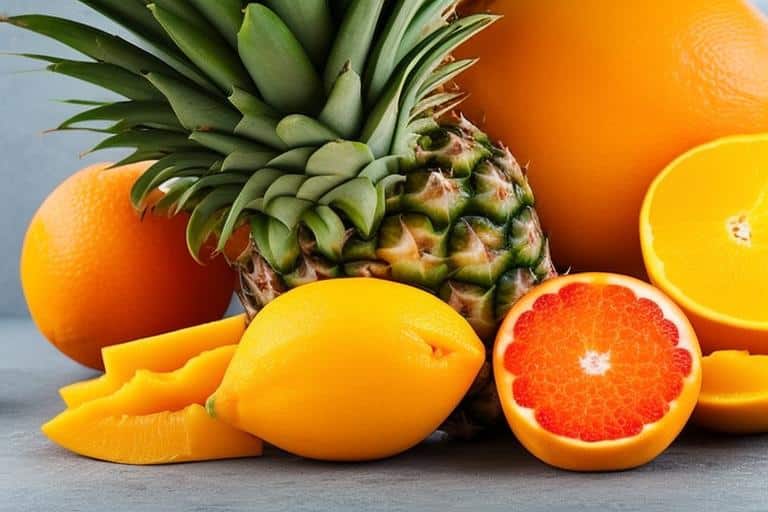Are you looking for a way to control your appetite with cannabis? If so, you’re in luck! In this blog post, we’ll explore how terpenes and cannabinoids can be used to regulate appetite. We’ll look at specific cannabis strains that are high in THCV content, as well as terpenes such as humulene, beta-caryophyllene, and limonene, which may play a role in suppressing appetite.
So, if you’re ready to learn more about using cannabis for appetite suppression, read on!
Looking to control your appetite with cannabis? Focus on strains high in THCV like Willie Nelson and Tangie, known for their appetite-suppressing properties. Terpenes like humulene, beta-caryophyllene, and limonene also play roles in appetite regulation. Hemp CBD could even block THC from activating hunger hormones. Choose the right combination of cannabinoids and terpenes to either suppress or stimulate your appetite.
Table of Contents
ToggleKey Takeaways
- Tetrahydrocannabivarin (THCV) is an appetite suppressant compound found in marijuana.
- Terpenes, such as humulene, can also suppress appetite by altering the production of hunger hormones.
- Strains high in THCV content, such as Tangie and Willie Nelson, are recommended for appetite suppression.
- Beta-caryophyllene and limonene are two other terpenes that can suppress appetite.
- Hemp CBD does not trigger the release of hunger hormones and may even block THC from activating those receptors.
Using Cannabis for Appetite Suppression
When it comes to manipulating appetite, different cannabis strains can be used to either increase or decrease hunger. Strains that are high in tetrahydrocannabivarin (THCV) content, such as Willie Nelson and Tangie, are less likely to induce the munchies compared to strains like Pineapple Kush, which are notorious for inducing hunger even when one is full.
THCV is an appetite suppressant compound found in marijuana, and it has been known to reduce fasting plasma glucose, decrease appetite, and increase satiety. Microdosing these specific cannabis strains is recommended if using them solely for appetite suppression and weight loss.
Terpenes and Appetite Suppression
The essential oils of marijuana, known as terpenes, have the potential to either stimulate or suppress appetite. Myrcene, caryophyllene, limonene, and pinene are terpenes that stimulate appetite, while humulene suppresses it. These terpenes affect the way in which the body produces ghrelin, the hormone responsible for producing sensations of hunger.
When endocannabinoid receptors in the digestive tract interact with cannabinoids and terpenes, it can change the amounts of certain hormones that are produced. Ghrelin is responsible for producing sensations of hunger, and certain terpenes can increase the amount of ghrelin the body produces, leading to an increased appetite. On the other hand, some terpenes can reduce the amount of this hunger hormone, resulting in a suppressed appetite.
Strains for Appetite Regulation
To increase appetite, Myrcene, Caryophyllene, Limonene, and Pinene are terpenes that are thought to be beneficial, while cannabinoids such as THC and CBG are also thought to increase appetite.
For suppressing appetite, Humulene is a terpene thought to help, as well as the cannabinoid THCV. Strains high in myrcene, limonene, or alpha-pinene have appetite-stimulating effects, while beta-caryophyllene and humulene may have appetite suppressant effects.
Hemp CBD does not trigger the release of hunger hormones like ghrelin and may even block THC from activating those receptors. Strains with higher THC levels are best for stimulating the appetite, such as Sweet Cheese, Girl Scout Cookies (GSC), Big Mac, and Florida Lemons.
For suppressing appetite, Durban Poison (1% THCV) and Pineapple Express (sativa dominant strain) are popular choices.
Humulene and THCV
Humulene is a terpene that can suppress appetite temporarily. It works by altering the way your endocannabinoid receptors work, particularly in your brain and digestive tract. This alters the amount of certain hormones that are produced, such as ghrelin, which is the hormone responsible for producing sensations of hunger. Strains with an abundance of humulene include GSC, Sour Diesel, and some varieties of OG Kush.
Similarly, THCV (Tetrahydrocannabivarin) is thought to be a great option for suppressing appetite. It is a very mildly psychoactive cannabinoid, and in small doses, it does not cause psychoactivity. Studies have shown that cannabis users, in general, tend to be slimmer than non-users, with lower fasting insulin levels. THCV acts as an antagonist to the CB1 receptor, decreasing its activity and thus suppressing appetite. Strains with high THCV content include Tangie (Skunk lineage), Girl Scout Cookies (Durban Poison lineage), Durban Poison, Jack the Ripper, Dutch Treat, Skunk #1, Doug’s Varin (bred for THCV content), and Willie Nelson (bred for THCV content).
Other Terpenes
Beta-caryophyllene and limonene are two other terpenes that can suppress appetite. Beta-caryophyllene is found in black pepper, basil, cloves, and oregano and features a peppery and spicy aroma with woody undertones. Strains high in caryophyllene terpene include Bubba Kush, Girl Scout Cookies, and White Widow. Limonene is a fruity, citrus terpene that smells like oranges and lemons, which can be found in cannabis Sativa strains alongside rosemary, lavender, ginger, citronella, etc. It is rich in antioxidants, which can help regulate obesity issues and promote weight loss. Additionally, it can boost immunity, improve gallbladder health, fight cancer, and decrease anxiety.
Camphene is another bicyclic monoterpene that has antibiotic and anti-inflammatory properties. It can be found in cannabis indica strains as well as rosemary, lavender, ginger, citronella, etc., but has not been linked to suppressing appetite specifically, yet it may play a role in regulating metabolism.
FAQ
What are the best cannabis strains for suppressing appetite?
If you’re looking to suppress your appetite using cannabis, strains high in Tetrahydrocannabivarin (THCV) are your best bet. Recommended strains for this purpose include Tangie and Willie Nelson, known for their high THCV content. Durban Poison and Pineapple Express are also popular choices for appetite suppression.
Which terpenes found in cannabis can help with appetite suppression?
Terpenes like humulene, beta-caryophyllene, and limonene are known to play a role in suppressing appetite. Humulene, for instance, alters the production of the hunger hormone ghrelin, helping to suppress your appetite. These terpenes can be found in various cannabis strains and have differing effects on your hunger hormones.
How does Hemp CBD affect appetite?
Unlike THC, which can induce hunger, Hemp CBD does not trigger the release of hunger hormones like ghrelin. In fact, it may even block THC from activating hunger receptors, making it a valuable option for those looking to manage their weight or suppress appetite.
Conclusion
The potential of cannabis to regulate appetite is exciting and promising. With the right combination of cannabinoids and terpenes, it is possible to increase or decrease appetite.
Strains that are high in THCV content, such as Willie Nelson and Tangie, are great for suppressing appetite, while strains with higher levels of Myrcene, Limonene, or Alpha-Pinene are beneficial for stimulating the appetite.
Terpenes such as Humulene, Beta-Caryophyllene, and Limonene can also be used to regulate hunger. Hemp CBD may even block THC from activating hunger receptors. With all these options available, it’s no wonder that cannabis has become an increasingly popular tool for managing weight and appetite!








